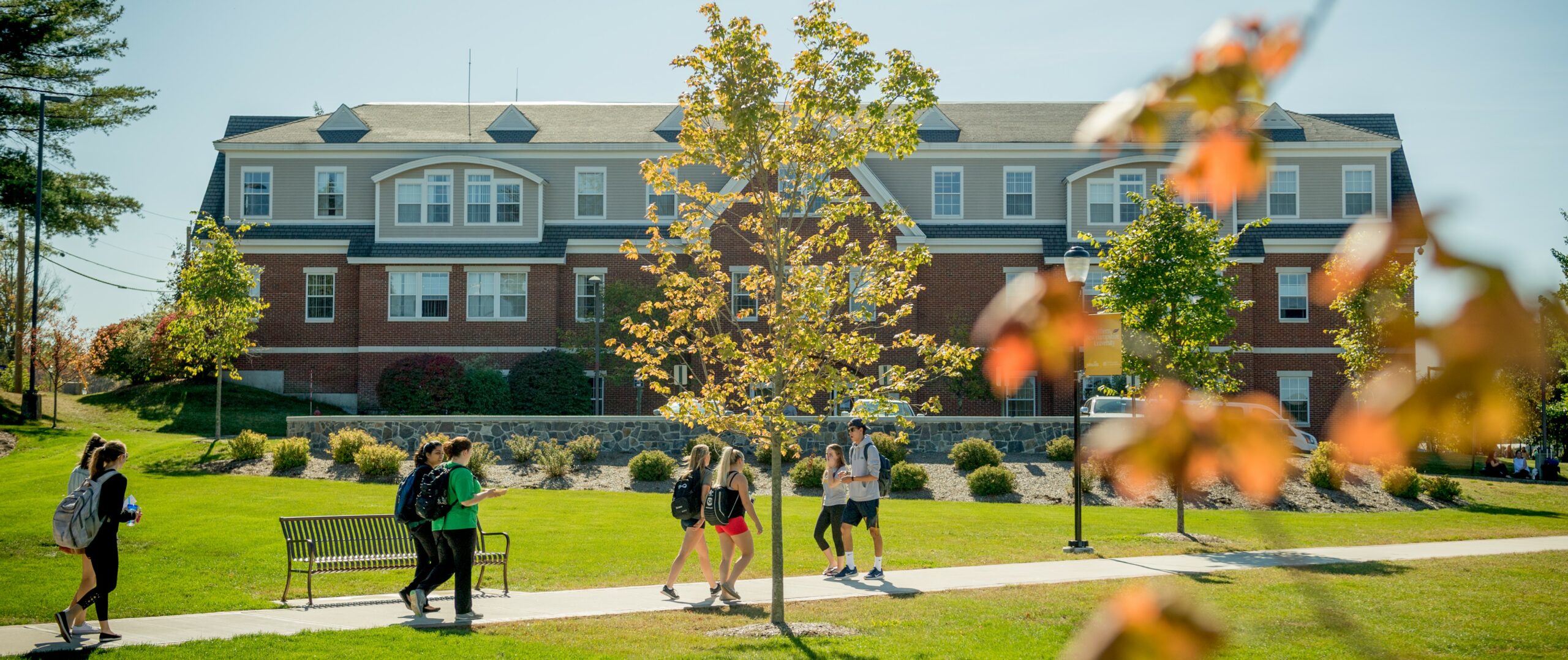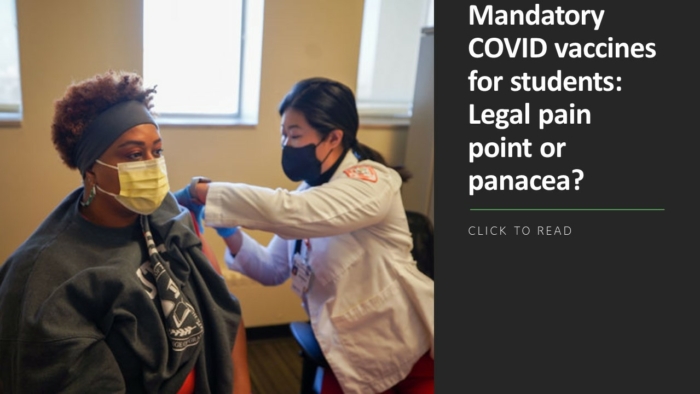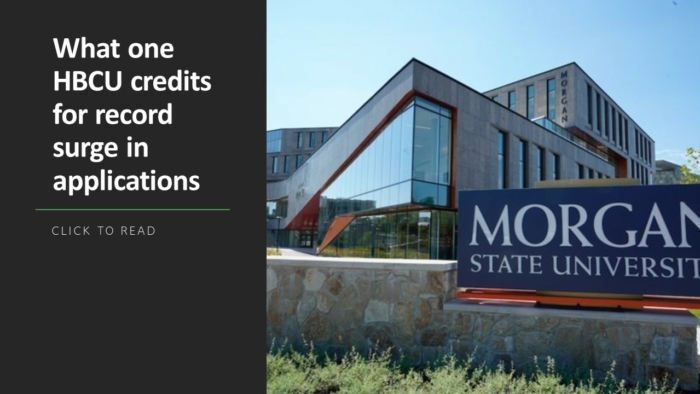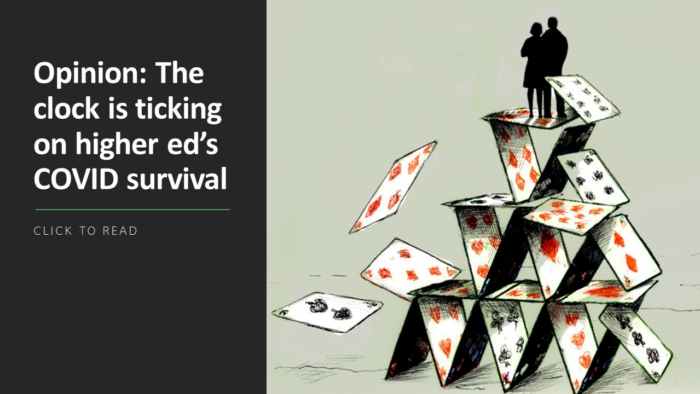There are file cabinets in the offices at Southern New Hampshire University that contain diplomas. Lots of them. They are largely from students who owe balances to the institution.
For years, about 10% of those who have been conferred at SNHU have not been able to get them or the accompanying transcripts that can be keys to applying for employment or graduate school. While the average debt owed is $728, there are scores of students who simply owe $150, the petition-to-graduate fee due in the final months of their academic journey.
While transcripts only cost $5 to $7 apiece (digital vs. print), the money can add up quickly if multiple copies are needed. During the COVID-19 pandemic, paying for them has been a challenge. But the biggest roadblock to students advancing and fully looking back at their experience at SNHU with fondness has been that debt. For some, it has been too steep to overcome so they just don’t pay. And the credits they’ve earned get stranded.
In April, Southern New Hampshire decided to end the cat-and-mouse game for this year’s graduating class, waiving transcript fees and holds and releasing diplomas to more than 2,200 students. The university is going through those cabinets and preparing to send out the rest to all of its past students, though the process will take some time. Though it is not absolving the debt, its policy is not to hold back those documents, either.
“The pandemic really opened up our eyes to what a burden it puts on a student when they cannot get an official transcript in order to apply for a job,” says Deanna Bechard, Registrar at Southern New Hampshire University. “It can be a vicious circle. But if a student is able to get a transcript and get a job, they are more apt to be able to write a check to SNHU then to not be able to get a job because they can’t get their transcript.”
More from UB: 8 ways to support students with stranded credits
According to a report done by Ithaka S+R in October 2020, the stranded credit problem is dire. The company notes that some 6.6 million former students (who cumulatively owe more than $15 billion) may be tangled in this seemingly never-ending web nationwide. Ithaka reports that every institution it polled has a stranded credit policy. Several states also allow for institutions to withhold transcripts.
But individual colleges like SNHU are amending those policies because the previous versions were too rigid and counterproductive.
“At the end of working so hard, at the end of your academic career, we’re gonna hold your diploma because you owe us money, instead of working off your balances as you go?” Bechard says. “We met with the student accounts folks, and we submitted a proposal to leadership. It was approved pretty much instantaneously.”
How they’re doing it
Southern New Hampshire, which has an immense presence of online learners since its transformation as New Hampshire College in 2001, confers about 25,000 students per year, so by simple calculations that’s about 2,500 diplomas annually that end up in those cabinets. SNHU is expecting a jump to 30,000 students soon, so the math just hasn’t added up.
“We used to think, well, it’s only $5 or $7, Bechard says. “But as the pandemic occurred, and all these phone calls came in, it became apparent that $5 and $7 to some of these students is a lot of money. If they want to go to five different grad schools, that’s $25 if you do them all electronically.”
So, they decided to immediately take care of this year’s students and release the transcripts and diplomas before opening the drawers and sifting through past documents last month.
“We were comfortable with the conferrals that happened in the last 30 or 60 days, that the address is probably the same,” Bechard says. “But ones that happened last year, we want to check to make sure that we have a valid address to send the diploma and the transcript to.”
Though a nice gesture from the university, it doesn’t come cheap. Since SNHU works with a third-party vendor that charges fees on transcripts, costs are absorbed by SNHU, which orders and pays for them when applications are submitted. Still, waiving transcript fees and holds could be worth it for other colleges and universities, especially if they are trying to maintain a positive student experience and reach those who face hardships. The holding of transcripts also often affects those more often from underserved populations, according to the Ithaka S+R report.
“I don’t know that all institutions are able to make the same decision because there is a loss of revenue,” Bechard says. “But we were marginally successful in collecting debt. It honestly only led to conversations about getting on a payment plan. Maybe if we had a high success rate [of collecting], but it just didn’t happen for us.”
Although the debt was something that Southern New Hampshire could not resolve, SNHU wanted to remain flexible and understanding, especially during the pandemic.
“The communication with students who do owe money is, let’s work on a payment plan,” Bechard says. “The last resort for any individual is to go to collections because that’s going to impact their credit. But at the end of the day, you have to pay for your education, so we want to give them an opportunity to pay even a little chunk at a time.”
Still, that small gift back from the university has been good for both students and SNHU.
“The easy answer is, it’s absolutely working in terms of a student experience, Bechard says. “It was the right thing for us to do.”
There are myriad considerations for colleges and universities as they navigate both the potential to waive transcript fees and holds or issue diplomas to those who still owe money to the institutions. Those resolutions can be simpler than other stranded credit situations, where debt is owed and students have dropped out or stopped out and left credits behind. Ithaka S+R in its report offers guidance to colleges looking to address the impact those scenarios have on both their campuses, their student populations and their reputations.









